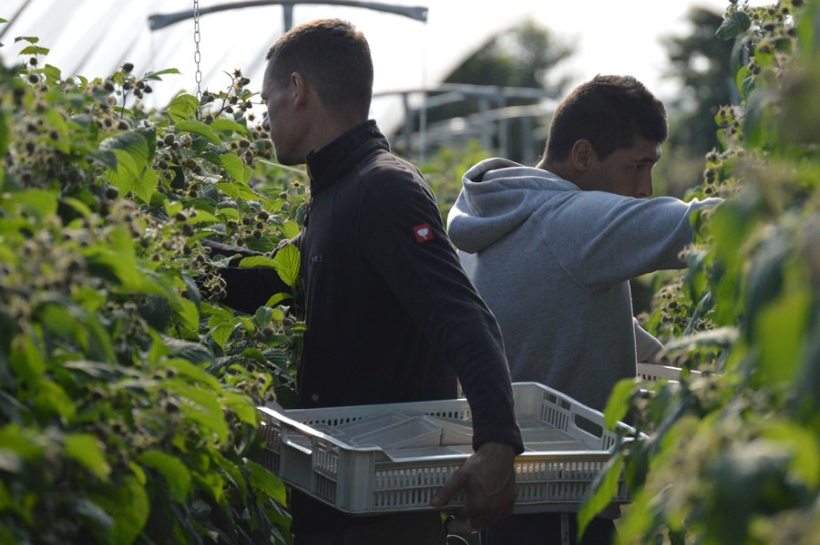
Horticulture and poultry businesses need to see assurances from government that the seasonal worker scheme will be kept for years to come, the NFU has said.
Defra has confirmed that for 2025, there will be a total of 43,000 seasonal workers available for horticulture and 2,000 for poultry as part of the scheme.
The government said the news would be a boost to British farming businesses, many of which have seen a huge decline in seasonal workers since Brexit and the pandemic.
Food Security Minister Daniel Zeichner said: “Confirming the seasonal worker visa allocation for 2025 gives growers and producers certainty, allowing them to plan ahead and secure the labour they need to grow and thrive."
While the NFU has welcomed the news as a 'relief', it has called for a long-term scheme for horticulture and poultry businesses to plan around.
For years, the industry has been pressing the critical role that seasonal workers have within the UK’s farming and growing businesses.
Chronic worker shortages have been damaging for the industry, with approximately £60 million worth of crops lost in 2022 due to a lack of labour.
Confidence of farmers and growers is also at an all-time low, with the availability of a workforce being one reason.
The recent recommendations by the Migration Advisory Committee (MAC) recognised how important the seasonal worker scheme is to UK food security and the need for a long-term scheme.
The committee recommended the government to continue and improve the visa programme, particularly against the backdrop of global instability and climate change.
Responding to the 2025 scheme, NFU president Tom Bradshaw said: "Farming and growing businesses don’t just work on year-to-year production cycles, they plan their business operations years ahead."
Horticulture and poultry businesses in the UK both had the ambition to grow, but essential to this was long-term certainty, he explained.
“We don’t want to see a return to empty supermarket shelves or further years where £22m of crops are left to rot in the fields and we want to ensure consumers have access to their favourite Christmas centrepiece during the festive season.
"We have an ambitious industry that wants to drive productivity to support the health and wellbeing of our nation, but action is needed to make this a reality."
